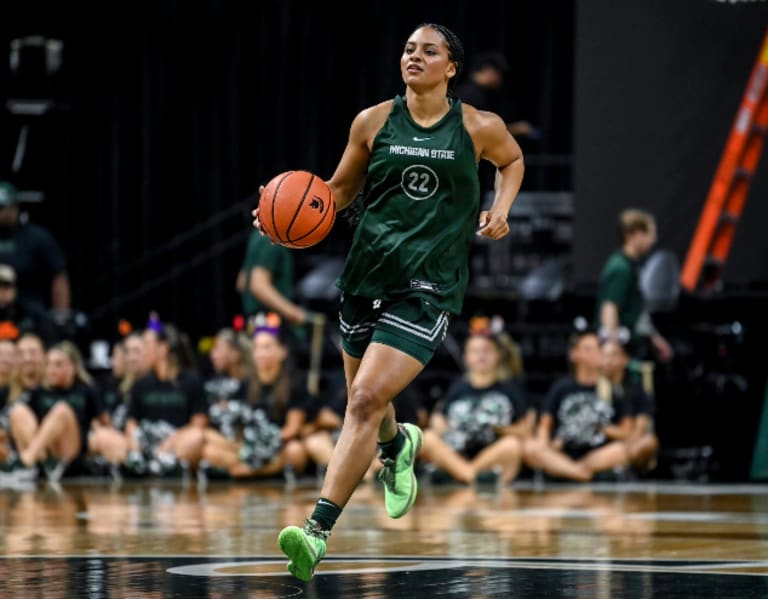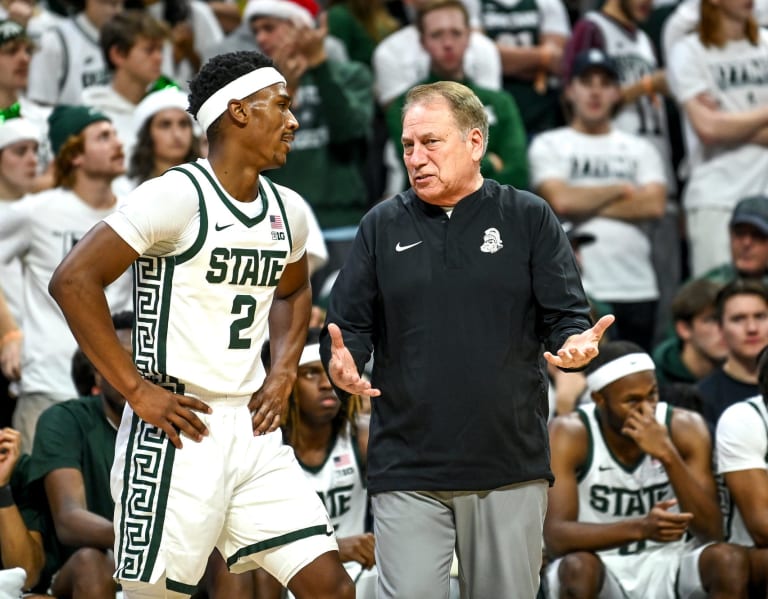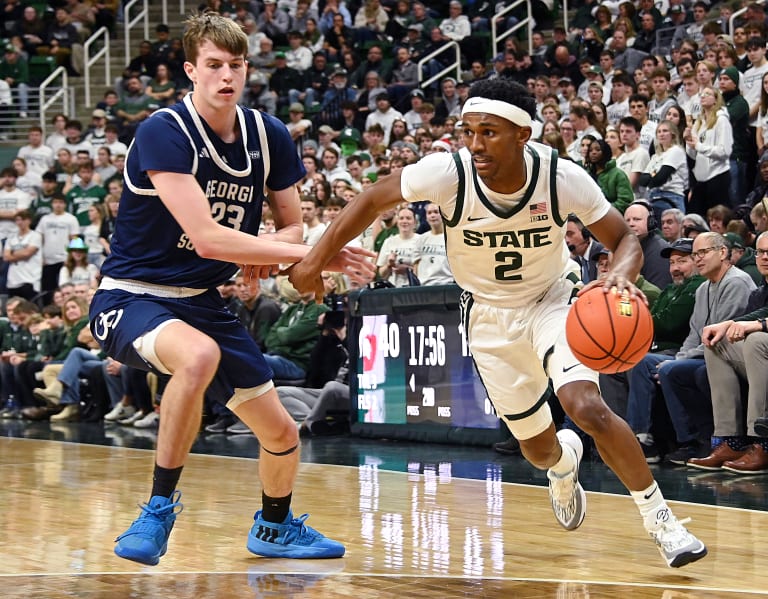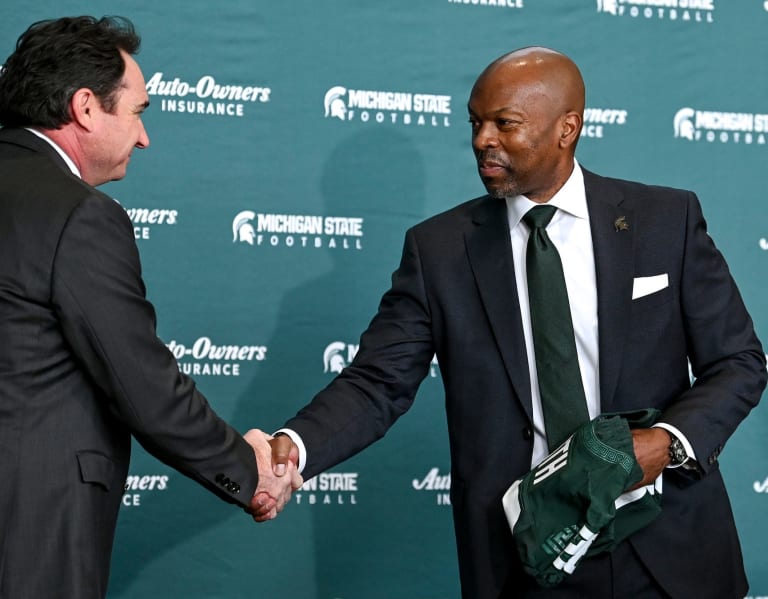BRETT DANIELS: I'd like to welcome everyone to the final College Football Playoff Selection Committee teleconference for the 2023 season. Joining us today is Bill Hancock, the executive director of the College Football Playoff, along with Boo Corrigan, College Football Playoff Selection Committee chair.
Q. Boo, similar to Florida State, SMU lost its starting quarterback late in the season. Did that play any factor in the decision to have Liberty ahead of SMU?
BOO CORRIGAN: No, it didn't. As we were looking at it, Liberty 5-0 against teams .500 or above, put up 700 plus yards against New Mexico State, a team that a week before went down and held Auburn to 10 points. Again, each one of these is held in isolation in looking at it, and SMU goes from unranked to ranked. A really good win against Tulane, but at the end of the day, the committee voted for Liberty at 23 and SMU at 24.
Q. How deep was the schedule conversation, the fact that SMU only lost to Power Five teams and Liberty didn't play Power Five teams? How did you guys kind of square that?
BOO CORRIGAN: Yeah, good question. It was part of the conversation as we were going through it. Our job is not to regulate who plays whom. It's to just on the opponents that they do play. But again, Liberty is averaging over 500 yards a game, scoring over 40 points. Looking at it any differently than going against their schedule, and again, we do strength of schedule in bands, and the band between SMU and Liberty was not so great that we looked at it as a key reason as to change the vote.
Q. Obviously when the conversation is Florida State versus Alabama, you've got a team that's played multiple top-15 opponents. You mentioned, of course, the injury to Jordan Travis. Did you feel like Florida State was given enough of an opportunity to kind of earn its way back after that injury, or was that something that once that happened and they had sort of a poor offensive performance, it was over?
BOO CORRIGAN: No, not at all. I think what we were looking at, and again, like the previous question, and I don't know if you heard it or not, it doesn't happen just in isolation. It happens, as well, when other teams around them are doing. But in the eyes of the committee, Florida State is a different team without Jordan Travis. One of the things we do consider is player availability, and our job is to rank the best teams, and in the final decision looking at that, it was Alabama at 4 and Florida State at 5.
Q. Do you worry that by setting a precedent that once a player goes out that you're kind of incentivizing teams to mislead or hide information that might hurt them in the committee's eyes?
BOO CORRIGAN: That's not a topic that ever came up. So no.
Q. What do you say to people that say you rewarded Liberty for going undefeated despite the strength of schedule that you mentioned and did the opposite for someone like Florida State?
BOO CORRIGAN: Well, again, everything is -- we don't look at it as compare one to another, between No. 5 and No. 23. Not to take away from what Liberty did this year and the job that they played. They can only play the people that are on their schedule. They were dominant on the field, as I said before. They were 5-0 against teams above .500. Again, Florida State, great year. Really hard for everyone down there, but the injury to Jordan Travis is something that in the eyes of the committee changed them as a team. Rodemaker and Brock Glenn came in, but they're a different team with Jordan Travis on the field.
Q. Just wanted to ask about Oklahoma's case for a bid in the New Year's Six, and what was it about Missouri and Ole Miss and so on that kept Oklahoma out ultimately of the top 11?
BOO CORRIGAN: Yeah, again, I think you're looking at the way that we do is the teams around them, and what did Missouri do this year, what did Penn State do this year, Mississippi. Four really good teams. As we looked at it, they were 4-2 against teams with winning records. The records in Bedlam, the loss to Kansas, and as we weighed that in relation to Mississippi, Penn State and Missouri, the committee came in with Oklahoma at No. 12.
Q. Did Oklahoma's quality wins, say over Texas, where did those fit into the conversation?
BOO CORRIGAN: Very much a part of the discussion as we were going through it. Missouri has got the win over Kansas State and Tennessee, Penn State, the two games they lost were two Ohio State and Michigan, including a big win over Iowa, the team that everyone saw last night defensively is really good, to win that game 31-0, again, Mississippi and the season they had.
Q. I heard on the ESPN broadcast in Alabama-Florida State today, you mentioned one of the things considered was from a coaching standpoint, who do you want to play, who do you not want to play. I don't believe that the criterion is listed in the rules for selection, so when and why did the committee start to consider that factor?
BOO CORRIGAN: Well, there's 13 people on the committee, all of whom have unique views. As we go into this, a coach is going to have a different unique view as opposed to an athletic director or a former player or Kelly, all of whom take great pride in what they do. Really more the point of that was to make sure that we're getting every single, hearing every opinion that's in the room to make sure that everyone is able to weigh everything as they look at it and everyone has got their own view finder, if you will, as they watch the games and make sure that we're hearing from everyone in the room.
Q. Bill, you sit in on these committee meetings. Was this the toughest -- do you think this was the toughest choice the committee has ever faced in the 10 years that we've been doing this?
BILL HANCOCK: You know, I've thought about that. Every year is so different. But in just looking at it from the whole big picture, we've never had a year with eight teams at the top as good as these are, and the five conference champions 1 through 5, we've never had it come out that way. My feeling is it probably was the toughest. I'm going to sound like a coach and say I need to look at the video, need to go back and look at the year-by-year narrative that we have. But I'll just repeat, we have not had a year where we had the top stacked so strongly as we had this year.
Q. Is it safe to say this would have been a pretty nice year for 12?
BILL HANCOCK: (Laughing) you know, 12 is going to be great, and we're all looking forward to it. But there will be issues with 12. People look for perfection, and there will be some teams that don't quite make it in 12 who are going to be asking some serious questions. I laugh because the easy answer is to say, yeah, I wish we had 12. But that's not going to be the panacea that some of us might think it might be. It's going to be great, don't get me wrong, with you it won't be perfect.
Q. Boo, you weren't trying to push for 12 last night, were you? Were you saying, Bill, any chance we can expedite this thing?
BOO CORRIGAN: No, I was not. We knew the charge. We knew the charge. No matter how late we stayed up it was the same charge, to get the top four teams.
Q. Boo, Florida State and Alabama had a common opponent in LSU. Florida State won by 21 on a neutral field and Bama won by 14 at home. How much of a discussion point was that in the room?
BOO CORRIGAN: It was part of the discussion, as everything was, as we looked at the entirety of the season, all 13 weeks, to make sure that there wasn't anything that we didn't talk about is what I would share. We talked about everything that we could -- from every person on the committee to making sure that we were weighing everything.
Q. How much of a factor was strength of schedule? It seems like you've talked so far about Bama over Florida State a lot, but how much was strength of schedule an issue?
BOO CORRIGAN: It's a factor. It's a factor, and it's part of our protocol, as we look at it. Again, Alabama's strength of schedule was significantly higher than Florida State's, but again, it's two really good teams. You can only play the teams in front of you, et cetera, but at the end of it, just the difference in their offense, and defense is wonderful, the special teams, the job that Coach Norvell has done this year is very admirable, but everyone has got great respect for the job that he's done. But we ended up with Alabama at 4 and Florida State at 5.
Q. Last week or actually less than a week ago, you guys put Florida State in the top 4 while saying their offense was different without Jordan Travis. With a quarterback who you know would be available for the College Football Playoff. What was different in a game that they ultimately beat a top-15 opponent and as you mentioned the defense was dominant? Essentially what changed from Tuesday to Saturday with what was different without Jordan Travis that made you cautious about it?
BOO CORRIGAN: Well, I mean, there's other teams that played, and Texas playing, Alabama playing, Alabama beating Georgia. Again, it would be great if it was just in isolation as we did this, but it is in combination as we're looking at it. The fact that Rodemaker was not there, we did have limited access visual on the job that he did, but again, looking at the top four, we had to decide if Florida State was better than Michigan, Washington, Texas or Alabama, and in the eyes of the committee, Florida State was fifth.
Q. What was your response to -- there's just a lot of statements made but one from Mike Norvell saying that he wondered why play the games if they win all their games and do everything that they've been asked and are left out. What's your response to that claim?
BOO CORRIGAN: It's a unique year. To have the conference champions that we had, to have the undefeated teams going into it, eight teams vying for an opportunity to be there, injuries do happen, and regardless of what we do, someone is going to be disappointed in what we do. But the committee's job and the 13 people in the room is to come up with what they believe are the best four teams.
Q. With Texas, Texas was No. 7, obviously they jumped up to No. 3. We had not seen a team jump from 6 or below at this point into the field. Can you just take us through the process of how Texas went from 7 to 3?
BOO CORRIGAN: Yeah, and everything is in concert, and going into the weekend we had eight teams that in our eyes as a committee that had separated themselves throughout the season. The win at Alabama, the wins over -- yesterday the win over Oklahoma State, 6-1 against teams above .500, the committee was very impressed with Texas and how they played all season, and they ended up as No. 3. Again, not looking at how far can we move someone, but we have eight really good teams, and that's why we were like everyone else looking forward to watching the games.
Q. How much were you talking in the room last night and into tomorrow about that head-to-head win over Alabama?
BOO CORRIGAN: It was significant. It was significant to go to Tuscaloosa, and as we talk about it, every week matters in what we're doing, and that was important, and it is part of our protocol.
Q. When comparing resumes, what stood out the most about Michigan and Washington and the Wolverines ultimately being No. 1?
BOO CORRIGAN: I think it was their dominance during the course of the season. Overall, and speaking for the committee, they're top 10 on defense, giving up 10 points a game, averaging less than three penalties, were really dominant in their games, the closest one being the Ohio State game where they had the late interception in what was a one-possession game. Washington, again, continued to get better. Their defense against Oregon came up with a huge three-and-out in the fourth quarter that really helped them in that game kind of just field the win. But in looking at the two, the committee was -- again, a lot of discussion around it, was most comfortable with Michigan at 1 and Washington at 2.




